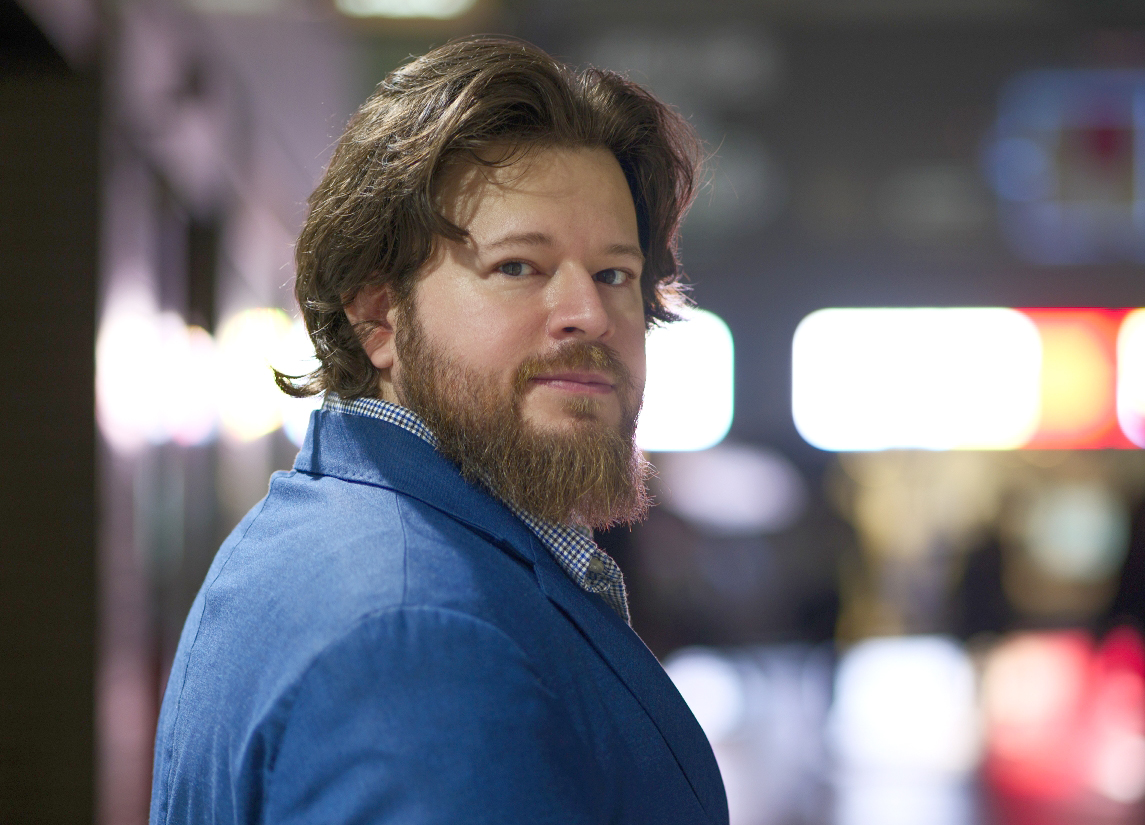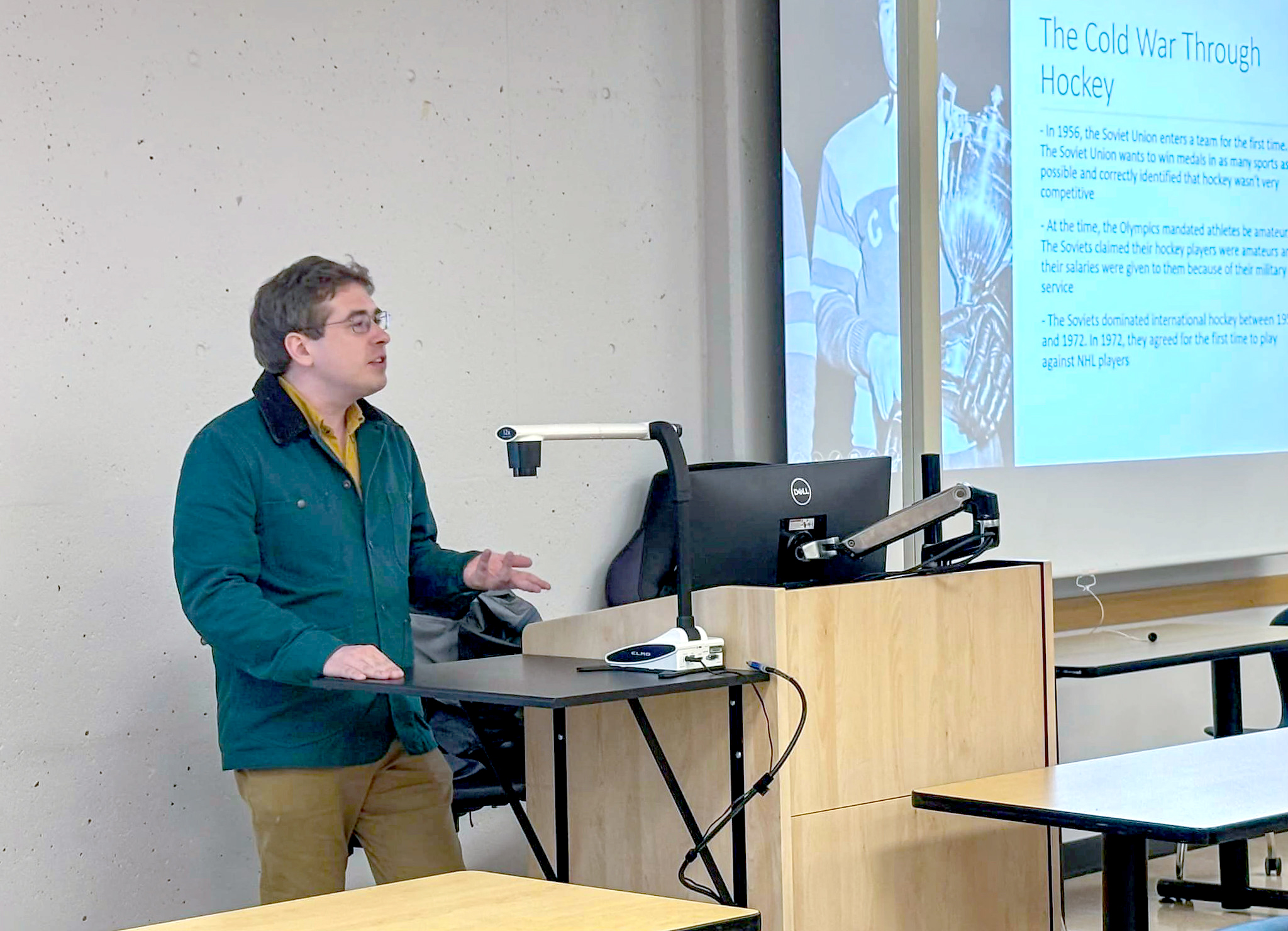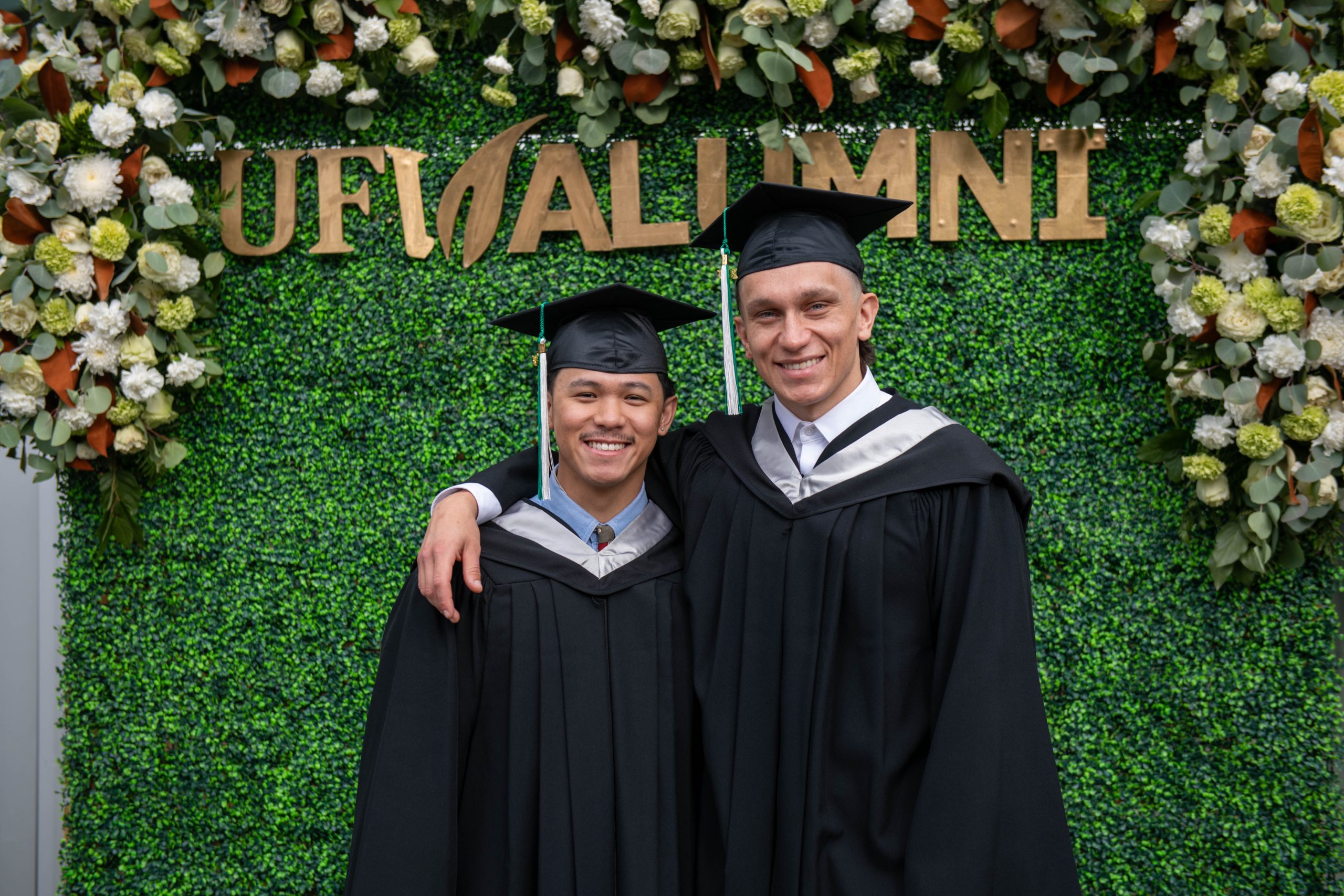Linguist Strang Burton to speak on revitalizing Halq’eméylem at UFV on Jan 24
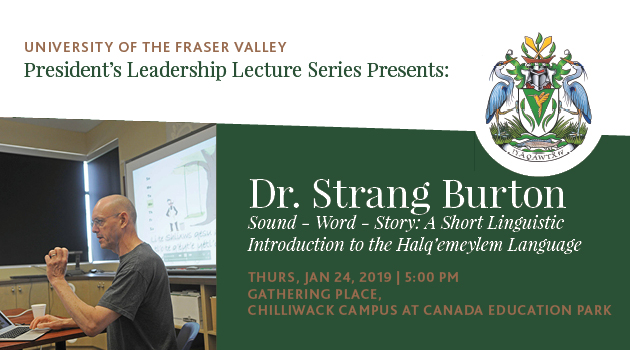 At its Convocation ceremonies last June, the University of the Fraser Valley conferred an honorary degree on Siyamiyateliyot Elizabeth Phillips, the last surviving fluent speaker of Upriver Halq’eméylem, the language of the Stó:lō people.
At its Convocation ceremonies last June, the University of the Fraser Valley conferred an honorary degree on Siyamiyateliyot Elizabeth Phillips, the last surviving fluent speaker of Upriver Halq’eméylem, the language of the Stó:lō people.
Professional linguists have played a vital role in assisting community members and Elders such as Siyamiyateliyot in helping the Stó:lō to keep their language alive, and one of them, Dr. Strang Burton, will speak at UFV’s Chilliwack campus on January 24 as part of the President’s Leadership Lecture Series. Siyamiyateliyot Elizabeth Phillips will also be in attendance at the event.
UFV president Joanne MacLean invites the public to join her at the event, which starts at 5 pm at the Gathering Place on the Chilliwack campus at Canada Education Park.
Burton is a faculty member in Linguistics at UBC and also works as an employee of the Stó:lō Nation language program, specializing in documentation and re-vitalization work for endangered languages. He has worked for many years with elders and community members to document the Upriver Halq’emeylem language, working for the community-run Stó:lō Shxweli Halq’emeylem Language revitalization program, at the Stó:lō Nation in Chilliwack.
He will speak to the work being done in the revitalization of the indigenous languages and in particular the Halq’eméylem language.
Burton started to work with the Stó:lō in the 1990s.
“They wanted people with knowledge of linguistics on their team,” he recalls. “But I also helped in the area of pedagogy, because in order to preserve the language we had to find ways to help in the teaching of it.”
Linguist Brent Galloway had laid the groundwork in the 1970s, working with the Coqualeetza Elders group at Stó:lō Nation to create a Halq’eméylem dictionary in print.
Burton and the Stolo Shxweli Elders group and community members built on this work by recording fluent speakers using the words and phrases in the dictionary so that learners could hear how the language sounds.
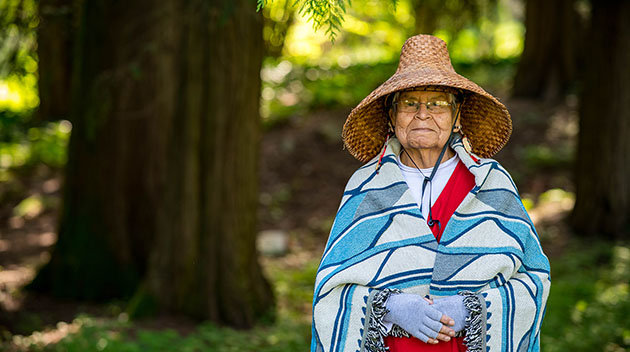
When he started his work, there were several fluent Halq’eméylem speakers. In addition to working with Elizabeth Phillips, he also worked particularly closely with the late Elizabeth Herrling (who, like Elizabeth Phillips, received an honorary degree from UFV [in 2004]), and with the late Rosaleen George.
They developed materials to help people learn how to converse in Halq’eméylem.
“We focused on some traditional stories, but we also recorded Elizabeth Herrling telling stories in her language about her life, what it was like growing up on Seabird Island, and raising her kids and foster kids. While preserving the language we also captured a sense of their lives.
“I am very proud that we took the time to listen to the Elders’ stories and presented the language in a way that’s personal, not just grammatical,” he notes. “And we have archived it, so in a few decades a Stó:lō person could go and listen to the recordings and not just hear their great auntie speak, but perhaps understand it, and learn more about her life and what it was like to grow up Stó:lō from the 1920s to the turn of the 21st century.
“We are no longer in a situation where we can run conversation groups, but we did the right thing in collecting the samples of fluent speech and getting it archived. Now the challenge is to find ways to use that material for teaching and learning.”
Another way Burton has helped preserve the language is through taking ultrasound recordings of the tongue of Elizabeth Phillips speaking Halq’eméylem, while simultaneously video recording her external features. He then superimposes the two recordings.
Various Stó:lō initiatives and programs work to keep the language alive, and a significant number of younger Stó:lō have some understanding of it. Halq’eméylem is used at the start of ceremonies and in other contexts.
UFV is also helping through running language courses, using the language when feasible, translating the names of centres and departments into Halq’eméylem, offering scholarships for Halq’eméylem courses, and having Elders and others bring greetings in Halq’eméylem at major events.
“I am very happy to see how UFV has such a positive connection to the language,” he notes.
You can listen to recordings of the Halq’eméylem on the First Voices and Stó:lō Shxweli Halq’emeylem Language websites. Many other recordings are archived at the Sto:lo Nation.


